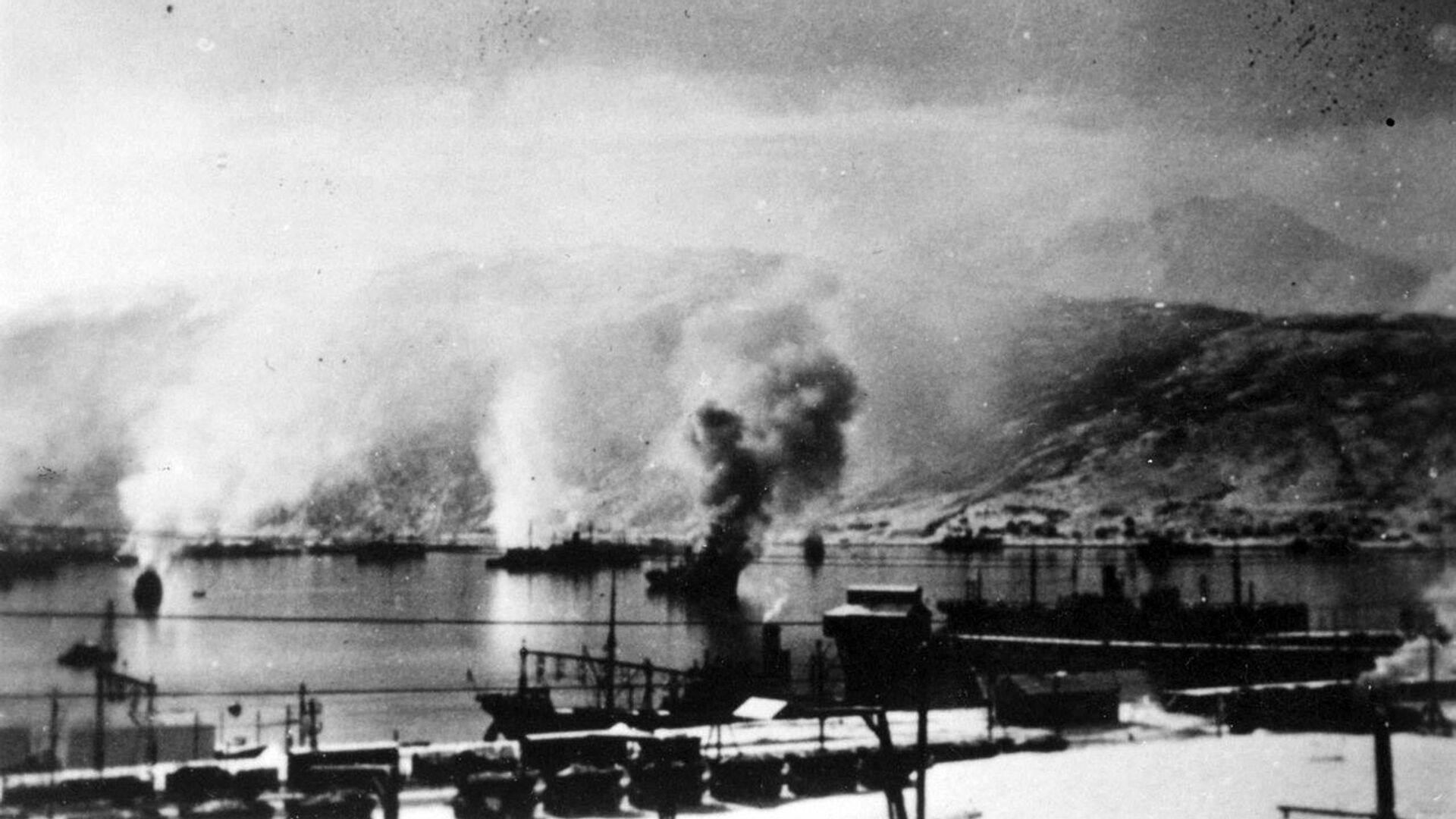Norway Finds Over 20 Misplaced WWII Bombs in Shallow Waters
Subscribe
After the war, large quantities of ammunition and explosives were dumped along Norway's coast, with the idea that saltwater would render them harmless with little consideration for the environment. Furthermore, some of the bombs were misplaced and pose a threat to anchored vessels.
Over 20 World War II bombs have been found at depths of nine to 20 meters by Norwegian divers several hundred metres from the entrance to the Kristiansand fjord opposite Kristiansand, the country's fifth-largest city and the unofficial capital of southern Norway.
“The largest ones weigh probably around 1,000 kg and contain over 500 kg of explosives”, Karl Klungland, the leader of Søgne Dykkerklubb, told national broadcaster NRK.
According to Klungland, the largest ones are about one and a half metres long and have a diameter of 60 centimetres.
Klungland argued that while the idea was for the bombs never to be seen again, they were dumped in the wrong position and landed in far too shallow waters. A known dumping area is located further east; there the depth is up to 200 metres.
Klungland argued that while the idea was for the bombs never to be seen again, they were dumped in the wrong position and landed in far too shallow waters. A known dumping area is located further east; there the depth is up to 200 metres.
The find was reported to the police and the armed forces.
Captain Wiggo Korsvik at the Armed Forces operational headquarters confirmed that the discovery had been unknown before. Korsvik also ventured that there was some cheating involved.
Captain Wiggo Korsvik at the Armed Forces operational headquarters confirmed that the discovery had been unknown before. Korsvik also ventured that there was some cheating involved.
“The unloading should have happened in the deepest place, but those tasked with the assignment chose to proceed as soon as they were out of sight,” Korsvik mused.
After the war, large quantities of ammunition and explosives were destroyed in Norway, a nation that saw bitter fighting and guerrilla warfare. Most were dumped along the coast, with the idea that saltwater would render them harmless. However, the effect on the ecosystem was not taken into account.
“The steel will gradually rust away, and toxic substances from the ammunition can flow into the sea,” Korsvik said.
It may thus become appropriate to either detonate or remove the bombs, depending on what is best for the environment. Korsvik argued that while there little risk for the bomb to go off, they still pose a threat if hit by a heavy anchor. Klungland also emphasised that the explosives shouldn't be easily accessible in shallow waters.

